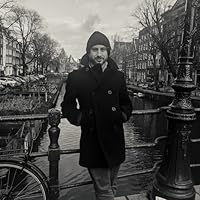Harlem Quotes
Quotes tagged as "harlem"
Showing 1-30 of 31
“Black is beautiful. Black isn’t power. Knowledge is power. You can be black as a crow or white as snow but if you don’t know and you ain’t got no dough, you can’t go and that’s for sho’.”
―
―
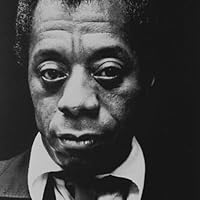
“In Harlem, Negro policemen are feared more than whites, for they have more to prove and fewer ways to prove it”
― Notes of a Native Son
― Notes of a Native Son
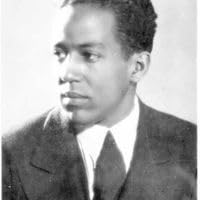
“Good morning, daddy!
Ain't you heard
The boogie-woogie rumble
Of a dream deferred?
Listen closely:
You'll hear their feet
Beating out and beating out a -
You think
It's a happy beat?
Listen to it closely:
Ain't you heard
something underneath
like a -
What did I say?
Sure,
I'm happy!
Take it away!
Dream Boogie
Hey, pop!
Re-bop!
Mop!
Y-e-a-h!”
―
Ain't you heard
The boogie-woogie rumble
Of a dream deferred?
Listen closely:
You'll hear their feet
Beating out and beating out a -
You think
It's a happy beat?
Listen to it closely:
Ain't you heard
something underneath
like a -
What did I say?
Sure,
I'm happy!
Take it away!
Dream Boogie
Hey, pop!
Re-bop!
Mop!
Y-e-a-h!”
―
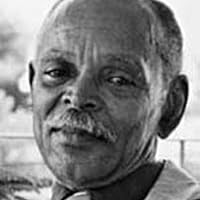
“This was the neighborhood of the cheap addicts, whisky-heads, stumblebums, the flotsam of Harlem; the end of the line for the whores, the hard squeeze for the poor honest laborers and a breeding ground for crime. Blank-eyed whores stood on the street corners swapping obscenities with twitching junkies. Muggers and thieves slouched in dark doorways waiting for someone to rob; but there wasn't anyone but each other. Children ran down the street, the dirty street littered with rotting vegetables, uncollected garbage, battered garbage cans, broken glass, dog offal — always running, ducking and dodging. God help them if they got caught. Listless mothers stood in the dark entrances of tenements and swapped talk about their men, their jobs, their poverty, their hunger, their debts, their Gods, their religions, their preachers, their children, their aches and pains, their bad luck with the numbers and the evilness of white people. Workingmen staggered down the sidewalks filled with aimless resentment, muttering curses, hating to go to their hotbox hovels but having nowhere else to go.”
―
―
“... Harlem was home; was where we belonged; where we knew and were known in return; where we felt most alive; where, if need be, somebody had to take us in. Harlem defined us, claiming our consciousness and, I suspect, our unconsciousness. (Page 64)”
― With Ossie and Ruby: In This Life Together
― With Ossie and Ruby: In This Life Together

“--and that if you gave them a dance floor and a full band to fuel them, they could do more than dance: they could fly. ....They did it without wings.”
― The World of Tomorrow
― The World of Tomorrow
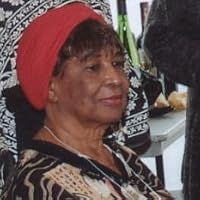
“I wanted to hug them all. We belonged to each other somehow...But that sweet feeling hung on and I loved all of Harlem gently and didn't want to be Puerto Rican or anything else but my own rusty self.”
― Daddy Was a Number Runner
― Daddy Was a Number Runner
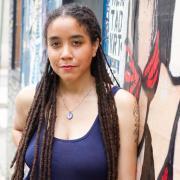
“You know gentrification is deep when a garage rock band made up of three white boys is called "Harlem".”
― The Truth of Right Now
― The Truth of Right Now

“Well, I was looking for Justice," said Simple. "I was tired."
"Tired of what?"
"Of hearing the radio talking about the Four Freedoms all day long during the war and me living in Harlem where nary one of them freedoms worked--nor the ceiling prices either.”
― The Return of Simple
"Tired of what?"
"Of hearing the radio talking about the Four Freedoms all day long during the war and me living in Harlem where nary one of them freedoms worked--nor the ceiling prices either.”
― The Return of Simple

“Oh, Lawd, I done forgot Harlem!
Say, you colored folks, hungry a long time in 135th Street--they got swell music at the Waldorf-Astoria. It sure is a mighty nice place to shake hips in, too. There's dancing after supper in a big warm room. It's cold as hell on Lenox Avenue. All you've had all day is a cup of coffee. Your pawnshop overcoat's a ragged banner on your hungry frame. You know, downtown folks are just crazy about Paul Robeson! Maybe they'll like you, too, black mob from Harlem. Drop in at the Waldorf this afternoon for tea. Stay to dinner. Give Park Avenue a lot of darkie color--free for nothing!”
― Good Morning, Revolution: Uncollected Social Protest Writings
Say, you colored folks, hungry a long time in 135th Street--they got swell music at the Waldorf-Astoria. It sure is a mighty nice place to shake hips in, too. There's dancing after supper in a big warm room. It's cold as hell on Lenox Avenue. All you've had all day is a cup of coffee. Your pawnshop overcoat's a ragged banner on your hungry frame. You know, downtown folks are just crazy about Paul Robeson! Maybe they'll like you, too, black mob from Harlem. Drop in at the Waldorf this afternoon for tea. Stay to dinner. Give Park Avenue a lot of darkie color--free for nothing!”
― Good Morning, Revolution: Uncollected Social Protest Writings
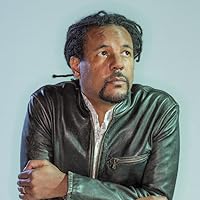
“Lieutenant Thomas R. Gilligan, thirty-seven, was off duty and out of uniform, checking out TVs in an electronics store. He went to investigate the commotion and stopped James Powell, a ninth grader who had joined the mob of angry students. Powell was unarmed, according to witnesses. Gilligan maintained that the boy flashed a knife. He shot him three times.
Two days later, Harlem erupted.
Pierce told Carney, "You have the people who are angry. Justifably so. And then there's the police force. How are they going to defend this shit? Again! And city hall and the activists. And in the way back of the room, you can barely hear a little voice, and that's the family. They've lost a son. Somebody has to speak for them."
"They're going to sue?"
"Sue and win. You know they ain't going to fire the bastard." Sermon crept into his voice here. "What kind of message will that send--that their police force is accountable? We'll sue, and it will take years, and the city will pay because millions and millions are still cheaper than putting a true price on killing a black boy.”
― Harlem Shuffle
Two days later, Harlem erupted.
Pierce told Carney, "You have the people who are angry. Justifably so. And then there's the police force. How are they going to defend this shit? Again! And city hall and the activists. And in the way back of the room, you can barely hear a little voice, and that's the family. They've lost a son. Somebody has to speak for them."
"They're going to sue?"
"Sue and win. You know they ain't going to fire the bastard." Sermon crept into his voice here. "What kind of message will that send--that their police force is accountable? We'll sue, and it will take years, and the city will pay because millions and millions are still cheaper than putting a true price on killing a black boy.”
― Harlem Shuffle

“The man subjected him to a never-seen-a-Negro-like-you-before look, not a novel experience for Carney. He reckoned it occurred more frequently these days, all over. Lunch counters, the voting booth, next thing you know they're running successful furniture businesses in Harlem.”
― Crook Manifesto
― Crook Manifesto

“Editors keep pushing
deadline strain while people sleep
on benches and subway grates;
a welter weight boxer dances
on the platform at 125th Street
station, commuters look unfazed...”
―
deadline strain while people sleep
on benches and subway grates;
a welter weight boxer dances
on the platform at 125th Street
station, commuters look unfazed...”
―
“The proponents of Harlem jive talk ... do not hope that courses in the lingo will ever be offered at Harvard or Columbia. Neither do they expect to learn that Mrs. Faunteen-Chauncey of the Mayfair Set addresses her English butler as 'stud hoss', and was called in reply, 'a sturdy old hen.' -- Original Handbook of Harlem Jive, 1944.”
― Dan Burley's Jive
― Dan Burley's Jive

“Activists from all over the world--the known & the unknown--would find their way to the Kochiyamas' Fri & Sat night open houses. 'People were everywhere, eating, talking, laughing, spilling out into the hallway [outside their apt]. People were even int he bathroom. You couldn't close the front door bc there were so many people inside,' recalled Herman Ferguson. The Kochiyamas' apt also became a central meeting place for the Movement.”
― Heartbeat of Struggle: The Revolutionary Life of Yuri Kochiyama
― Heartbeat of Struggle: The Revolutionary Life of Yuri Kochiyama
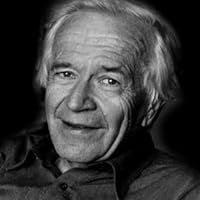
“We have torn down the worst slums. The natural meeting-points for the lumpenproletariat have been eliminated, converted into pleasant, dull, clean blocks for dull, clean, adapted families. In the absence of ghettos for the losers, they gather around the centres of pride. If Harlem and its equivalents did not exist, they would gather outside the Rockefeller Center.”
― Limits to Pain: The Role of Punishment in Penal Policy
― Limits to Pain: The Role of Punishment in Penal Policy
“Scott Cooper Florida called the film [New Jack City] "a superior example of what used to be called blaxploitation.”
―
―

“Reno was somebody from the streets. I think he took to me because he saw me as somebody from the streets, somebody who hated to see the sun go down on Eighth Avenue, who would run up on Amsterdam Avenue, follow the sun down the hill, across Broadway, to the Drive and the Hudson River, and then would wait for the sun to come back. I guess Reno thought he'd found somebody who was destined to be in the streets of Harlem for the rest of his life.”
― Manchild in the Promised Land
― Manchild in the Promised Land
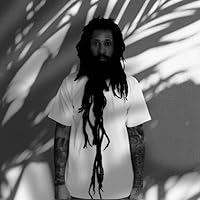
“My black literary hero's and I had these two places in common. Harlem NYC, and Paris France.”
― Ripped Pages the unedited Writing of Tim Storrs
― Ripped Pages the unedited Writing of Tim Storrs
“About the time I was 17 and graduated from high school, I went to Harlem, and that was a most beautiful place where, fortunately for me, I came into, or rather, ran into, the hands of some wonderful people, people who formed an important part of the so-called Black Renaissance. They were people like Langston Hughes, Wally Thurmond, Bud Fisher, all really wonderful writers. I lived in the YMCA where you could rent a room for $2 a week and they put all the regular inhabitants up on the 11th floor. Among them were people like Charlie Drew, who became the developer of blood plasma, distinguished physicians, physics people, and biologists.”
― Why I Left America and Other Essays
― Why I Left America and Other Essays
“I was right there in the middle of all of this action. I didn’t have to think up gags…The cartoons drew themselves…I was more surprised than anyone when Brother Bootsie became a Harlem household celebrity, not only among the colored proletariat be among the literati as well.”
― Why I Left America and Other Essays
― Why I Left America and Other Essays
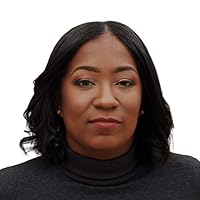
“Claudie wrinkled her nose. 'I don't think anyone would buy a ticket to see me perform,' she said.
Selma laughed. 'What do you mean?' she asked. 'You have a lovely voice.'
'Not like yours,' Claudie said.
'It doesn't have to be like mine to be lovely,' Selma said. 'It's lovely because it's yours.”
― Meet Claudie
Selma laughed. 'What do you mean?' she asked. 'You have a lovely voice.'
'Not like yours,' Claudie said.
'It doesn't have to be like mine to be lovely,' Selma said. 'It's lovely because it's yours.”
― Meet Claudie

“About the only thing I understand is this here cornet. You move this finger and you get one note. That finger, and you get a different one. But people are a mystery.”
― Meet Claudie
― Meet Claudie

“Miss Zula smiled. 'I did not ask if you were good at it,' she said. 'I asked if you liked to dance.”
― Meet Claudie
― Meet Claudie
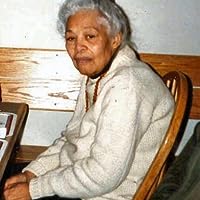
“She got off the train, thinking that she never felt really human until she reached Harlem and thus got away from the hostility in the eyes of the white women who stared at her on the downtown streets and in the subway. Escaped from the openly appraising looks of the white men whose eyes seemed to go through her clothing to her long brown legs. On the trains their eyes came at her furtively from behind newspapers, or half-concealed under hatbrims or partly shielded by their hands. And there was a warm, moist look about their eyes that made her want to run.
These other folks feel the same way, she thought—that once they are freed from the contempt in the eyes of the downtown world, they instantly become individuals. Up here they are no longer creatures labeled simply 'colored' and therefore all alike. She noticed that once the crowd walked the length of the platform and started up the stairs toward the street, it expanded in size. The same people who had made themselves small on the train, even on the platform, suddenly grew so large they could hardly get up the stairs to the street together. She reached the street at the very end of the crowd and stood watching them as they scattered in all directions, laughing and talking to each other.”
― The Street
These other folks feel the same way, she thought—that once they are freed from the contempt in the eyes of the downtown world, they instantly become individuals. Up here they are no longer creatures labeled simply 'colored' and therefore all alike. She noticed that once the crowd walked the length of the platform and started up the stairs toward the street, it expanded in size. The same people who had made themselves small on the train, even on the platform, suddenly grew so large they could hardly get up the stairs to the street together. She reached the street at the very end of the crowd and stood watching them as they scattered in all directions, laughing and talking to each other.”
― The Street
All Quotes
|
My Quotes
|
Add A Quote
Browse By Tag
- Love Quotes 97.5k
- Life Quotes 76k
- Inspirational Quotes 73k
- Humor Quotes 43.5k
- Philosophy Quotes 29.5k
- Inspirational Quotes Quotes 27k
- God Quotes 26k
- Truth Quotes 23.5k
- Wisdom Quotes 23.5k
- Romance Quotes 23k
- Poetry Quotes 22k
- Death Quotes 20k
- Happiness Quotes 18.5k
- Life Lessons Quotes 18.5k
- Hope Quotes 18k
- Faith Quotes 18k
- Quotes Quotes 16.5k
- Inspiration Quotes 16.5k
- Spirituality Quotes 15k
- Religion Quotes 15k
- Motivational Quotes 15k
- Writing Quotes 15k
- Relationships Quotes 14.5k
- Life Quotes Quotes 14k
- Love Quotes Quotes 14k
- Success Quotes 13.5k
- Time Quotes 12.5k
- Motivation Quotes 12k
- Science Quotes 11.5k
- Motivational Quotes Quotes 11.5k

